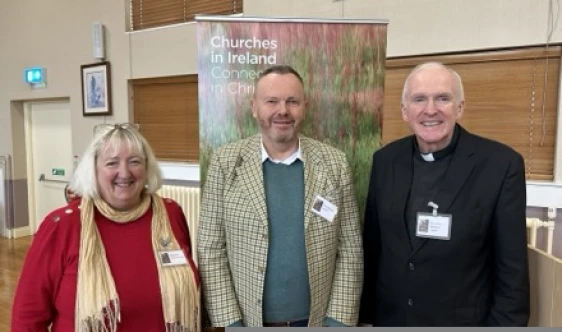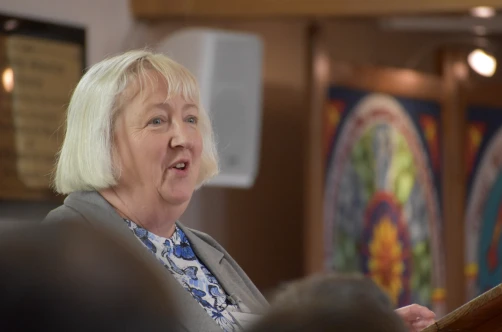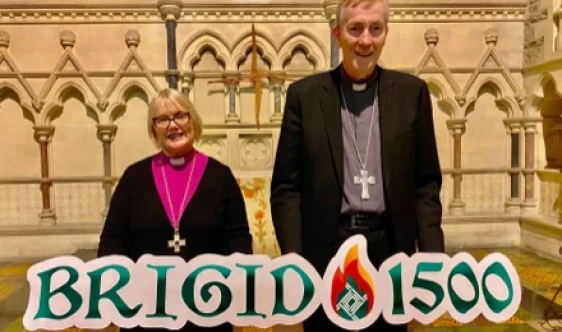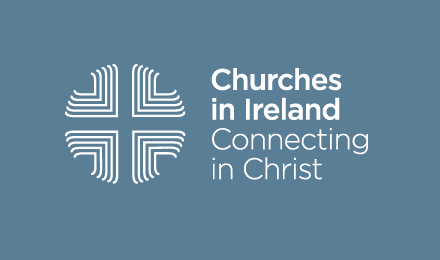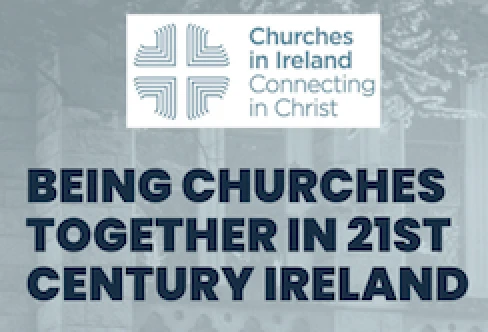
At this time of great anxiety and sadness for so many, near and far, we draw strength from the way in which local communities have pulled together to protect the most vulnerable. Our member churches have been adapting and responding in a wide variety of ways. This article aims to share some of the learning and highlight priority areas of need identified by churches.
Connecting in Christ in a time of social distancing
Restrictions on public gatherings have had a profound impact on churches because the experience of being together and praying together as a community is such an integral part of our Christian identity. There has been an incredible flourishing of creativity and innovation in the digital space to address the spiritual and pastoral needs of our church communities, and viewing figures for broadcast worship and social media videos indicates a real appetite for this experience of Christian witness and connection. We are also seeing the emergence of new opportunities for inter–church engagement, fellowship and sharing. Across the wide variety of different forms of engagement, the unifying thread is the heartfelt desire to share the Good News of the Gospel, and bring a reminder of God’s loving presence when it is most needed. This doesn’t require specialist equipment or hours of editing. It’s possible to keep it short, simple and engaging. For those who are unsure where or how to begin connecting with people in the digital space, our Programme Officer has put together a helpful starter guide which is available here.
One of the most difficult aspects of the restrictions on ministry has been the impact on pastoral support to those who are sick, and to the bereaved. While the pain of what we can’t do, like visiting someone, holding their hand or coming together as a community for a funeral, weighs heavily at this time, it’s important not to lose sight of what we can do now, and what we will do for them in the future. In recent media engagement the ICC President has emphasised the power of Lament as a prayer tool that allows us to draw near to people, spiritually, in their grief, even when we cannot do so physically, and in a way that leaves space for the hope arising from our Christian faith.
Protecting the most vulnerable
Scripture repeatedly reminds us that our love for God cannot be separated from our care for our neighbour, our hospitality to the stranger and what we do for those who are most vulnerable. The unique context of a global pandemic provides a stark reminder of our inter–connectedness as a global human family.
Across the island of Ireland church communities have played a crucial role in helping to identify those who may be vulnerable, connecting them to supports such as food banks, community transport and delivery services, as well as signposting to other available forms of assistance. Some clergy have displayed helpline numbers (for relevant charities and/or local authority supports) during their online worship videos, and this has been a really helpful way of offering a lifeline to people who may not know where to turn for support.
The level of collaboration at community level between local authorities, churches, charities, businesses, sporting organisations has been a testament to the ties of solidarity and the spirit of generosity at the heart of our society. In both jurisdictions we have seen partnerships between Government and the community and voluntary sector to register the different forms of support being offered. Churches are encouraged to ensure that any services they offer are included on these lists: for Northern Ireland see https://www.communityni.org and for the Republic of Ireland see https://www.wheel.ie/community-response. The long–term nature of this emergency means that it is important to ensure not only that those who need help receive it as quickly as possible, but also that people are being connected to the most appropriate forms of help, and that resources are being used to best effect, to ensure sustainability of supports.
Inter–Church engagement and collaboration can take on a particular significance in this context as that expression of shared Christian witness can be a sign of hope when people are in need of encouragement. As our churches face significant challenges in terms of income, and pressures on clergy, staff and volunteers, inter–church collaboration allows not only for the pooling of resources, but also for peer support which can help sustain morale at times of stress.
Faith–based development agencies such as Christian Aid and Trócaire remind us of our responsibilities to those across the world who face severe risks from Covid–19 due to inadequate sanitation, health services, accommodation or the pressures of other national emergencies. We remember particularly all those who have been displaced from their homes and are seeking asylum, throughout the world and on the island of Ireland. Faith–based organisations working in these areas provide us with the means to extend our networks of care and compassion to the poorest and most marginalised globally, and to advocate for their protection as part of any plans for economic recovery.
Shining a light in the darkness of isolation and fear
Churches were quick to recognise the priority that needed to be given to mental health as people faced long periods of isolation. Many expanded existing services or set up new befriending initiatives. Some have taken steps to ensure that people have the means and ability to get online, and the need for training for older people has provided valuable opportunities for inter–generational exchange as young volunteers take up the invitation to impart their wisdom. Others are delivering newspapers or other reading material. It can be helpful too to provide reminders of broadcast worship services that may be of interest.
For those who are isolated, churches can bring not only trusted volunteers, but also reliable sources of information. Sadly, during this exceptional time, some criminals have identified new ways to target the vulnerable. Churches are encouraged to share community safety information (details are available here) as well as disseminating public health information from the relevant authorities, and discouraging people from sharing unverified information on social media, which can sometimes cause unnecessary fear and panic.
The stress of so much uncertainty, combined with the way restrictions on travel can leave people feeling confined and frustrated, can prove challenging for relationships. This may be further exacerbated by the adjustments to be made for working from home. Accord have launched a helpline, available across the island, to support couples who may benefit from relationship support with a Christian ethos (details are available here).
The extent to which young people’s lives have been disrupted cannot be overlooked as examinations are cancelled, extra–curricular activities are suspended and socialising can only be done remotely. While the majority of young people are already well–equipped to engage in the digital space, including around issues of faith, it can be helpful for youth leaders to think about the particular challenges of the Covid–19 context. The Church of Ireland has produced a guide to support planning in this area. Care for the Family have developed a Covid–19 parent support resource page to help parents navigate some of the challenges of isolation. Young people with Special Educational Needs and their families can be significantly impacted by the change in routine and may be in particular need of support and attention.
Sadly, for some people, the home is not a safe place. Information about ways in which churches can help support the victims of domestic violence and abuse at this time can be found here. We need to be mindful too of the dangers of the digital space. Sharing information about cyber–security, cyberbullying and other forms of online exploitation, is an important contribution to community safety.
A message of hope in uncertain times
When Christ encountered fear His response was ‘Peace be with you’. We cannot do all we would wish in terms of support and outreach while restrictions remain in place, but there is much we can do to minimise harm, and reassure people that they are not alone. Our Christian faith provides resources to sustain us through the uncertainty and disruption that will be a feature of our lives for some time to come, and inspires us to reach out to bring that message of hope to those who are struggling.
